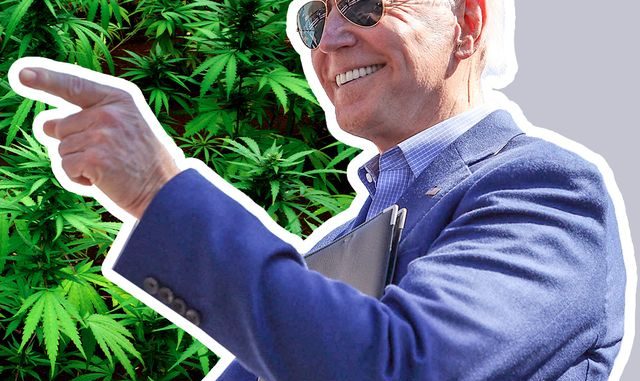
On Thursday Oct. 6, Pres. Biden pardoned people with prior federal offenses of marijuana possession. The pardon will forgive around 6,500 who have been convicted of simple marijuana possession at the federal level. It is not expected to remove anyone from federal prison because no one with this federal offense of cannabis possession is currently incarcerated. The pardon is expected to help prior offenders when applying for housing or employment and is seen as a step in the right direct for cannabis reform in the country.
The Justice Department stated, “Conspiracy, distribution, possession with intent to distribute, and other charges involving marijuana are not pardoned by the proclamation.” This means the pardon does not impact the estimated 3,000 people who remain in federal prison after being convicted of higher level marijuana possession. It also does not affect those incarcerated at the state level, where most people are imprisoned for marijuana possession. While the current number of people behind bars for marijuana possession is unclear, The Last Prisoner Project estimates that around 30,000 people are incarcerated for cannabis at the state level in the U.S. Biden’s pardon does not extend to state criminal charges, but he called on governors to forgive the possession charges in their states and said, “Just as no one should be in a federal prison solely for possessing marijuana, no one should be in a local jail or state prison for that reason, either.”
Biden said he is asking the Secretary of Health and Human Services and the Attorney General to review whether marijuana should be classified as a Schedule I substance under the Controlled Substances Act. The label of a Schedule I substance is meant to indicate it has a high potential for abuse, a lack of accepted medical use of treatment in the U.S. and a lack of accepted safety for use under medical supervision. “This is the same schedule as for heroin and LSD, and even higher than the classification of fentanyl and methamphetamine – the drugs that are driving our overdose epidemic,” Biden stated.
The pardon does not protect people from future simple marijuana possessions after Oct. 6, 2022. It also does not apply to people who were non-citizens at the time of his or her offense. Matt Cameron, a professor of immigration policy at Northeastern University explained the implications of this. “If you’re in deportation proceedings or applying for a visa or applying green card, and you’re charged for possession, you will be denied. And you won’t be eligible for a waiver,” he said. “You could be denied a green card and you would be denied for life.”
People have been sent to jail for simply possessing marijuana for decades, but in some states, this is no longer the case. The pardon aligns with positions taken by state governments that have already decriminalized marijuana. Already, approximately 2 million marijuana convictions have been expunged or pardoned by states where the drug is now legal.
Marijuana legalization has been a polarizing topic in the past, but recent data shows majority of American support legalizing marijuana nationwide. According to a recent survey by Morning Consult/Politico, three in five voters say marijuana should be made legal in the U.S.; 27% said it should not be. Currently, a legislative push to remove marijuana from the Controlled Substances Act and allow states to make their own laws regarding marijuana is stalled in Congress. While Biden did not call for total decriminalization of marijuana, something Congress would have to take on, his pardon indicates a shift in how the government responds to cannabis. Marijuana has divided the country for decades, with possession offenses fueling conversation regarding the disproportionate arrests of Black people for marijuana possession. For example, when tracking marijuana possession arrests across approximately a decade, the ACLU found that Black people have been nearly four times more likely than white people to be arrested for marijuana possession.
Udi Ofer, a former deputy national political director of the ACLU stated, “This is an important political statement, it’s an important value statement, it’s progress, but this is a drop in the ocean of injustice.”

